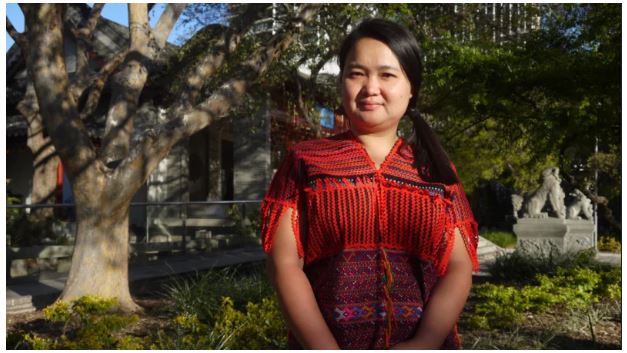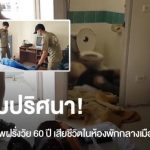A Karen human rights campaigner has warned of a growing humanitarian and mental health crisis among 100,000 displaced people marooned on the Thai-Myanmar border.
General secretary of the Karen Women’s Organisation Naw Knyaw Paw said international aid organisations had largely abandoned the border to move into Myanmar following the election of Aung San Suu Kyi in 2015.
This had triggered a catastrophic fall in funding for the ethnic minorities living in dire conditions in seven camps along the border and who are unable to return home.
“The situation is getting desperate. People are losing hope. It’s as bad as I’ve seen it,” said Knyaw Paw, who is in Australia this week to raise awareness about the plight of the refugees.
Knyaw Paw said the lack of hope was manifesting itself in a rise of suicides and increased violence against women.
The suicide rate in Mae La, the largest of the camps and home to about 50,000 people, is more than three times the global average, a 2017 study by the International Organisation for Migration found.
Twenty-eight refugees killed themselves at the camp in the two years from 2015, while 66 attempted suicide. Knyaw Paw said there were 74 suicides in all border camps in the past four years.
The Karen are one of many ethnic groups in Myanmar who have endured decades of persecution and displacement along the north-east of the country.
In the west in Rakhine state, more than 700,000 Rohingya were forced to flee after the army began a concerted campaign of violence and ethnic cleansing.
Knyaw Paw was recognized by the US State Department in its International Women of Courage Award this year in part for defending the Rohingya, and said things were just as bad in the east.
She said one camp had been forced to cut disability funding for children, while other camps have introduced a cash card system. “People are living on less than $US10 [$15] a month.”
Since 2015 she said the camps have gone from having 10 government donors, including Australia, down to four.
The Australian government will provide about $84 million in aid to Myanmar in 2019-20, but the weak Australian dollar has meant a cut in real terms.
Because of difficulty getting access to the troubled Rakhine state and conflict-riven states in the north-east, most aid organisations have gone to Yangon, where they have to comply with government directives reducing their effectiveness in reaching conflict-affected communities.
She said the UNHCR had set up a voluntary repatriation centre, but only about 1000 people had used it over a two-year period.
“It is simply not safe for people to return home. There is supposed to be a ceasefire, but the army break it all the time.
The conflict is still going on. And even without the fighting, there are landmines, lack of work and housing and no medical services.”
Speaking from inside a rain-sodden Mae La this week, Karen refugee Saw Ku said there was now a cycle of abuse in the camps.
“People have no jobs, hungry, no hope, no rights … just waiting to be told ‘go back’. It affects everyone – old, young, students – it causes family conflict,” he said.
“The food situation is crippling families. Sometimes it’s the beans that are cut then it’s the rice. It’s not easy for us to manage.”
He said people were forced to rely on the UNHCR for protection, but “we can’t rely on them”.
“If you listen to what they say, it sounds lovely, such sweet words, but the reality is the words are just that: words. They don’t take responsibility for us.”
A United Nations fact-finding mission on Myanmar released this month found consistent patterns of serious human rights violations and abuses in Kachin, Shan and Rakhine states, in addition to serious violations of international humanitarian law between 2011 and 2018.
Knyaw Paw was in Australia with Union Aid Abroad-APHEDA, which has several aid projects in Myanmar and along the border.
She grew up in a camp after her village was razed by the Myanmar military.
“I was born displaced. I spent my entire childhood either running or in refugee camps. Imagine being an 11-year-old girl, coming home to see your village empty, your family gone, and spending days wandering from settlement to settlement, looking for your family. I was that 11-year-old girl.”
Knyaw Paw called for the international community to urgently reinstate financial support for the camps and to reinstall a boycott against Myanmar’s government and businesses.




